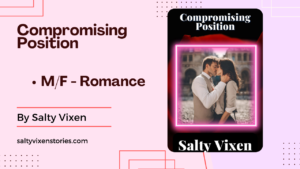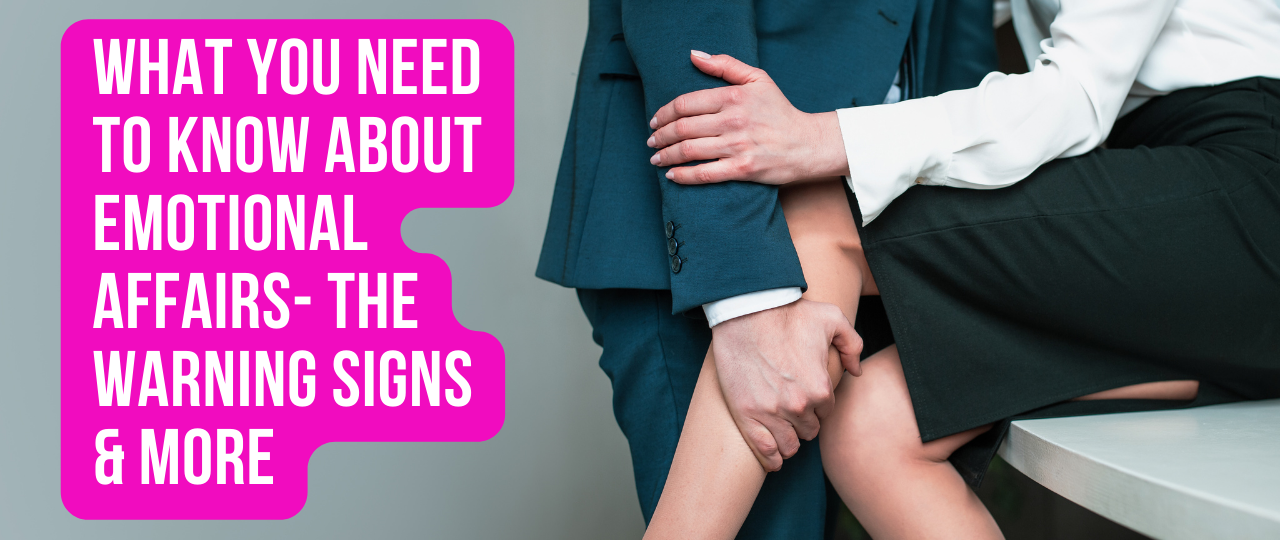I was once in an emotional affair, a story that I will not talk about as it is painful for me. IT wasn't supposed to happen, it just fell that way. We were two lonely people looking for some playful fun that turned into full blown sexting, to video sex session, photos being exchanged. How did it end? I had to end it. It was the hardest thing for me to do because we were drawn together. He tried to end it a few times and then came back. I tried to end it a few times and came back. The fantasy was hot. An emotional affair generally starts innocently enough as a friendship. Here is some information about what an emotional affair is, how an emotional affair differs from a platonic friendship, warning signs of an emotional affair, how to protect yourself from an emotional affair.
Through investing emotional energy and time with one another outside the marriage relationship, the former platonic friendship can begin to form a strong emotional bond which hurts the intimacy of the marriage relationship. While there are those who believe that an emotional affair is harmless, most marriage experts view an emotional affair as cheating without having a sexual relationship.
Emotional affairs are often gateway affairs leading to full blown sexual infidelity.
"About half of such emotional involvements do eventually turn into full-blown affairs, sex and all."
Source: MSNBC
For some individuals, the most hurtful and painful consequences of an emotional affair is the sense of being deceived, betrayed, and lied to.
What is an Emotional Affair?
An emotional affair is when a person not only invests more of their emotional energy outside their marriage, but also receives emotional support and companionship from the new relationship. In an emotional affair, a person feels closer to the other party and may experience increasing sexual tension.
If you believe that a person's emotional energy is limited, then if your spouse is sharing intimate thoughts and feelings with someone else, an emotional affair has developed. Although cheaters are often guilt-free in an emotional affair because there is no sex involved, their spouses often view an emotional affair as damaging as a sexual affair.
Much of the pain and hurt from an emotional affair is due to the deception, lies, and feelings of being betrayed.
How is an Emotional Affair Different from a Platonic Friendship?
An emotional affair is opening a door that should remain closed.
One of the differences between a platonic friendship and an emotional affair is that an emotional affair is kept secret.
A third difference is that people involved in an emotional affair often feel a sexual attraction for one another. Sometimes the sexual attraction is acknowledged and sometimes it isn't.
Comments from the Marriage Forum About Emotional Affairs
Readers on saltyvixenstories.com sent us their thoughts on emotional affairs. A platonic friendship can evolve into an emotional affair when the investment of intimate information crosses the boundaries set by the married couple.
~~ From B.: "It's a relationship with a member of the opposite sex where you wouldn't feel comfortable with your spouse knowing all the details."~~ From J.: "It's a term I might use to describe an extra-marital (or extra-committed-relationship) relationship that has not escalated to physical sex."
~~ From I.: "I strongly suspect it's so nebulous and worrisome a term that it creates more strife than it can actually help dissolve..."
~~ From I.: "But if the married person is simply grabbing lunch with an opposite sex friend, chatting about innocuous subjects, and now and then catches a movie with the friend -- basically acts exactly the same with this friend as with same gender friends -- then he or she can still be committing an emotional affair if his or her spouse just doesn't like men and women hanging out together. That radically changes the dynamic and renders the term 'emotional affair" very problematic to me."
Warning Signs of an Emotional Affair
There are several warning signs of an emotional affair.
- You are withdrawing from your spouse.
- You are preoccupied and daydream about your friend more and more.
- You are not interested in being intimate with your spouse, either emotionally or sexually.
- The amount of time you and your spouse spend together is less.
- When confronted about the apparent emotional affair, you respond, "We're just friends."
- You find yourself anticipating when you can communicate or be with your friend again. Alone time together is important to you.
- You are sharing your thoughts, feelings, and problems with your friend instead of your spouse.
- You find reasons to give your friend personal gifts.
- Your friend seems to understand you better than your spouse does.
- You are keeping your friendship a secret from your spouse.
Quiz - Are You in an Emotional Affair?
- Are you experiencing repetitive hostility and conflict in your marriage?
- Do you feel an emotional distance from your spouse?
- Do you find it difficult to talk with your spouse?
- Are you sharing more with your friend than you are with your spouse?
- Do you think your friend understands you better than your spouse?
- Are you sexually attracted to your friend?
- Is the phrase, "We're just friends", your rationalization for your close friendship?
- Does your spouse know about your friendship or is your friendship a secret?
- Do you look forward to being with your friend more than being with your spouse?
Differing Views on How to Protect Your Marriage From an Emotional Affair
Although there are differing views on how to protect your marriage from being hurt by an emotional affair, we think your marriage is best protected from an emotional affair by the two of you working together to have a marriage built on a strong foundation of friendship and trust.
Deciding to Limit Relationships -- No!
We disagree with the often made suggestion to limit your interpersonal relationships/friendships.
M. Gary Neuman in his book, Emotional Infidelity: How to Affair-Proof Your Marriage and 10 Other Secrets to a Great Relationship (amazon.com ) makes the controversial statement: "Insulate and protect your marriage against emotional infidelity by avoiding friendships with members of the opposite sex."
Neuman believes that limiting your relationships/friendships is "the single most important thing you can do for your marriage."
One of the reasons we question the suggestion to limit relationships/friendships is because it creates couples living in isolation. Isolating a spouse from friendships is one of the warning signs of emotional abuse.
Another reason we disagree with Neuman's limits on interpersonal interaction is the idea that a spouse has exclusive, 100 percent rights over a mate's friendships, interests, and sense of space and privacy.
Neuman's other suggestions for protecting your marriage from an emotional affair are more acceptable and include:
- Touching each other five times a day.
- Have a weekly date.
- Have a long discussion with one another four times a week.
- Plan an all-out romantic lovemaking night once a month.
Build a Relationship With a Foundation of Friendship and Trust
You can affair-proof your marriage by working together to have a marriage based on friendship and trust.
Here are some suggestions on how to build that foundation and keys to protecting your marriage from an emotional affair.
- Plan on living a balanced life with one another.
- Have dates with each other and create ways to have fun together.
- Don't let irritations build up. Learn how to have healthy conflict in your marriage.
- Communicate on a daily basis with each other. Talk about practical issues, plans, events, and personal feelings. The little things to talk about are as important as the bigger issues.
- Be supportive of one another.
- Show respect and mutuality for each other.




















